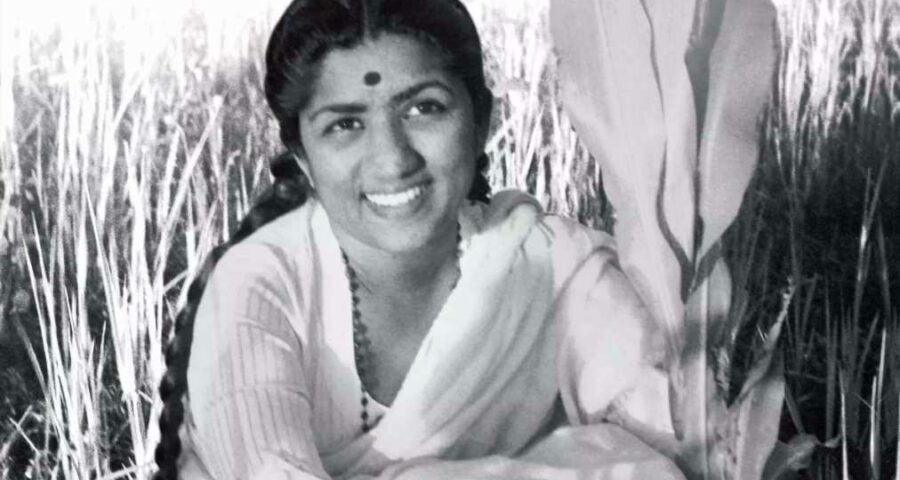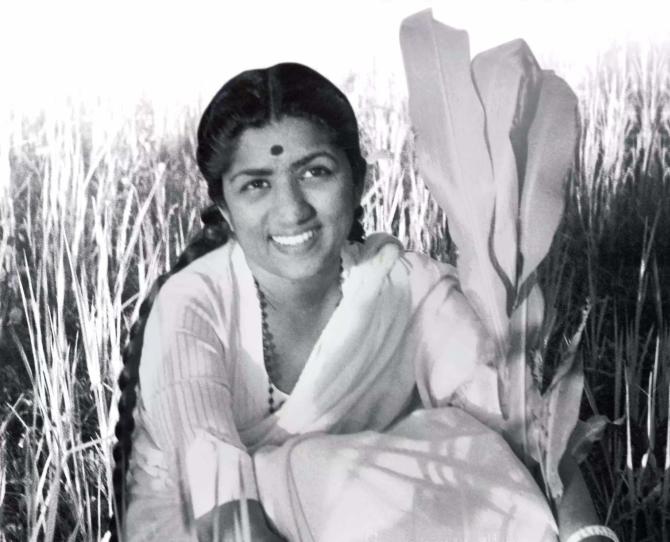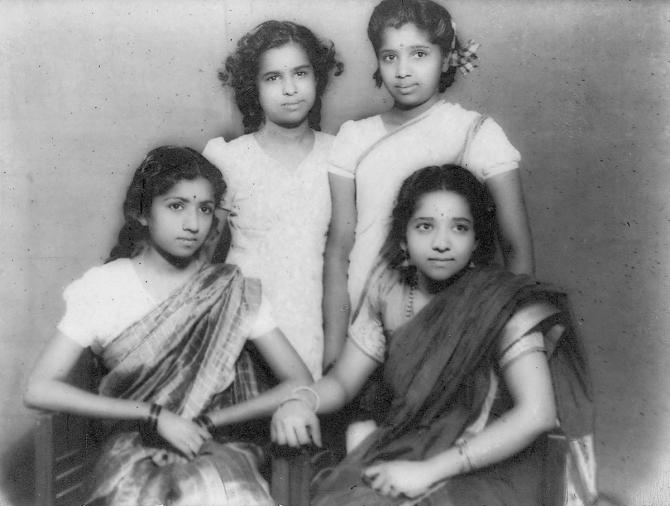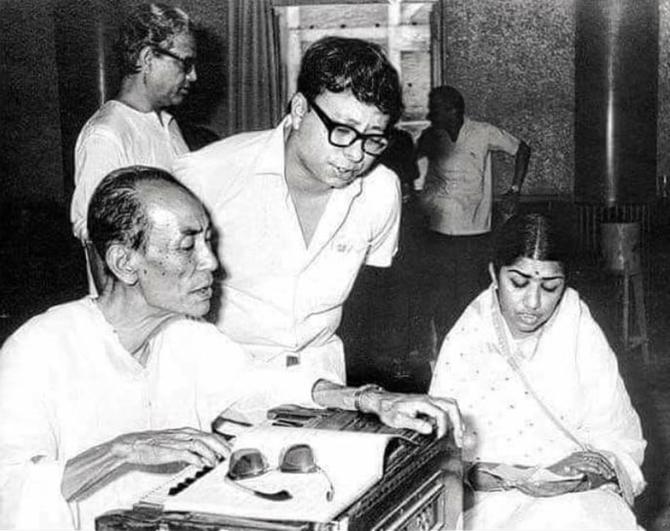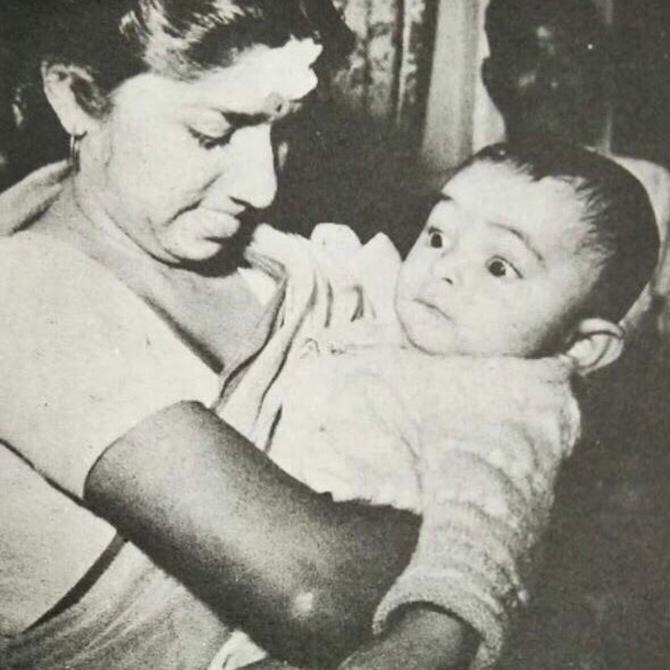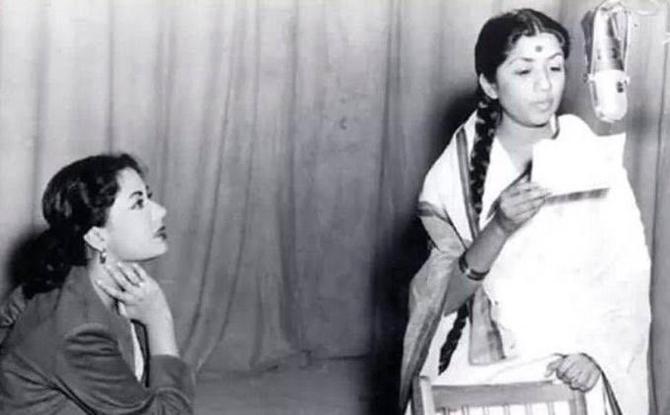I spent almost all my life trying to figure out how anyone could express so many shades of human feeling in her voice, wonders Subhash K Jha.
I cry a lot when I hear her sing these days. I welcome those tears. They remind me of how blessed I was to know her, love and worship her.
Two images from my long and life-defining association with the Voice Of India, Mata Saraswati Lataji stand out.
One: We, Lataji and her sister Ushaji (whom I nowadays call to cry about our irreplaceable loss) and I enter a restaurant in Mumbai… and every single man woman and child stands up quietly. No one asked them to. They knew.
Two: After one of my visits to her iconic Peddar Road residence (my Taj Mahal in Mumbai) as I reluctantly and tearfully leave her residence, she rushes out from inside barefoot to ask, “Subhash, do you have a vehicle?”
The vehicle reminds me of her faithful driver Mahesh… She looked after him and his family like her own until her dying breath.
Mahesh and I were bonded by our mutual love for the Goddess.
I wonder where Mahesh is after her death, or whether he is being looked after.
I should have taken his number while she was still alive. But then we never thought a day would come when she would leave us.
Her infectious laughter and her generosity of spirit were exemplary.
I spent almost all my life trying to figure out how anyone could express so many shades of human feeling in her voice. After I met her 34 years ago I tried to understand how the most gifted artiste civilisation has ever produced could be so humble down-to-earth and… just normal.
But she was all of that. She would pick up the phone and call one of her bhakts just to ask about his or her health.
Once a man from Nagpur reached out to her for financial help for his cataract operation when his children failed to provide the necessary funds.
She called him on the number that was printed at the top of the letter. The man was stunned. “I had to find out if he was a genuine case before helping him,” she explained to me.
I would often ask her how she could make herself accessible to random people.
After all, she was The Lata Mangeshkar. Inversely she could snub the biggest of celebrities if they crossed the line.
She could barely control her laughter. “Can you explain to me what being Lata Mangeshkar means? Maine apne-aap ko kabhi koi badi cheez nahin samjha. Haan, achcha gaa leti hoon. Lekin mujhse bhi bahot achche gaane wale hain hamare desh mein (I never considered myself something special. Yes, I sing well. But there are many who sing better than me in our country).”
The humility was not a put-on. Believe me, I know the fake modesty that’s prevalent in this film industry.
There is the iconic actor who keeps repeating he is ‘nobody’ only so that those around him would jump to their feet to protest, ‘Arrey nahin, Sir. Aap toh legend ho. Aapko toh Bharat Ratna milni chahiye.’
She was utterly liberated of vanity. This doesn’t mean she was a walkover. No one could take financial or emotional advantage of her.
When she entered a recording room she was the Queen of all she sur-weighed.
I remember the wonderful Dev Anand telling me, “When Lata had to record a song there was always tension. If she felt her voice was even a fraction not up to the mark she would cancel at the last minute and no power on earth could persuade her to change her mind.”
A perfectionist and generous to a fault, Lataji gave gifts to everyone she liked in the entertainment industry.
Some of the upstarts who were the privileged recipients of her generosity didn’t even bother to say thank you.
When a young singer whom Lataji had discovered on a music reality show had a baby, Lataji sent clothes for the child. There was no acknowledgment.
More than hurt there was bewilderment at such acts of impudence. But she wouldn’t stop being herself just because the world around her was so petulantly toxic.
When a cricketer married an actress Lataji assigned me the task of getting the couple’s address so she could send them a gift.
Sure enough, the couple didn’t bother to acknowledge her generosity.
Maybe they didn’t get it.
Feature Presentation: Rajesh Alva/Rediff.com
Source: Read Full Article
